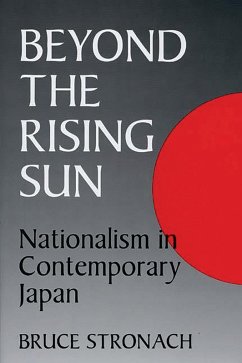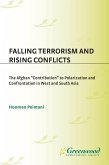Japan's aggressive economic development has led many Americans to fear that it will lead to an equally aggressive nationalism reminiscent of the pre-World War II period. Beyond the Rising Sun demonstrates that such fears are unfounded. Although cultural nationalism is strong, Japan today is a stable and peaceful democracy. Professionals, academics, government officials, business people, and the general public will find this challenge to many current views about Japanese politics, people, and U.S.-Japanese relations provocative. There has long been concern that Japan's aggressive economic development might be a harbinger of an equally aggressive nationalism, reminiscent of the dark era leading up to World War II. The media has fueled the image of a newly aggressive Japan by using martial metaphors such as Samurai capitalism that is invading American markets. Moreover, the Japanese are also portrayed as subservient members of a conformist society manipulated by political authority. However, a long-time resident in Japan and scholar on U.S.-Japanese relations argues that contemporary Japanese nationalism has no connection to its prewar embodiment and fears of an authoritarian and aggressive Japan have no basis in reality. Of the many changes in Japan since the end of the war, the most significant has been the development of a deeply ingrained democratic political culture. Although a strong force in Japan today, nationalism is manifested by a strong ethnic, cultural, and racial identification and not by citizen identification with the state. By examining the wide varieties of nationalism in contemporary Japan and by explaining the role that they play in society and politics, academics, professionals, government officials, business people, and the general public will find this analysis invaluable for understanding contemporary Japan. This short text is designed also for use in courses in Japanese politics, contemporary Japanese society and culture, and U.S.-Japanese relations.
Bitte wählen Sie Ihr Anliegen aus.
Rechnungen
Retourenschein anfordern
Bestellstatus
Storno









